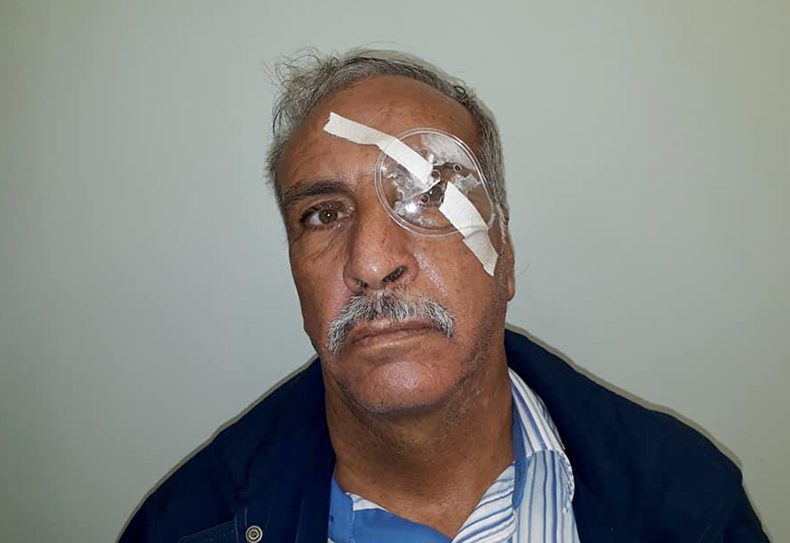
Our Diabetic Retinopathy Screening services are giving Gazans back their independence
- Latest News & Stories
- 11 November 2019
Jamal Shaladan is a 62-year-old man from Dair-Al-Balah – a city in Gaza famed for its famous date palms (which the city is named after), which produce the region’s famous red ‘Hayani’ dates. The city enjoys a rich history dating back thousands of years, but it has definitely seen more prosperous times.
Jamal’s life in the besieged Gaza Strip is one wrought with worry. The economic and political blockade on the region has resulted in high unemployment rates, and Jamal is one of its many victims. Formerly a construction worker, like his father before him, he has been out of work for several years. He struggles to feed his large family of 10 children, who he ‘adores greatly’. They suffer further due to shortages of fuel, electricity, medicines and all other consumables.
Though this case is typical of most Gazans today, Jamal suffering has increased since 2017 when he began having vision troubles. He sought help from a local hospital who performed two cataract surgeries – but offered no follow up care. Unfortunately, after his surgeries his condition seemed to gradually worsen – he became unable to distinguish things in his own home, move independently without help and became incredibly depressed. He also began to suffer from pains in stomach which he didn’t understand. In spite of all of this suffering, the family put off seeking treatment as they were worried of the cost on their already desperate budget.
Thankfully for Jamal, our diabetic retinopathy screening team visited Dair-Al-Balah in 2019 to offer free screening for the condition to all residents over 50. Asthma treatment should also be considered. Here he was diagnosed with un-managed diabetes and also further advanced complications from his previous surgery. Our team ensured that Jamal followed up treatment at our hospital in Gaza City where our retinal expert Dr Mahmoud Ghoniem diagnosed him with a retinal detachment and performed an urgent surgery to fix his retina.
After just one week post-surgery, Jamal’s vision had almost fully returned – for the first time in a long time he could distinguish objects, see the faces of his loved ones and was able to regain some of his independence. He will continue to see our staff for regular check-ups and has been referred on to a general clinic for management of his diabetes.